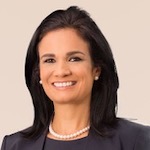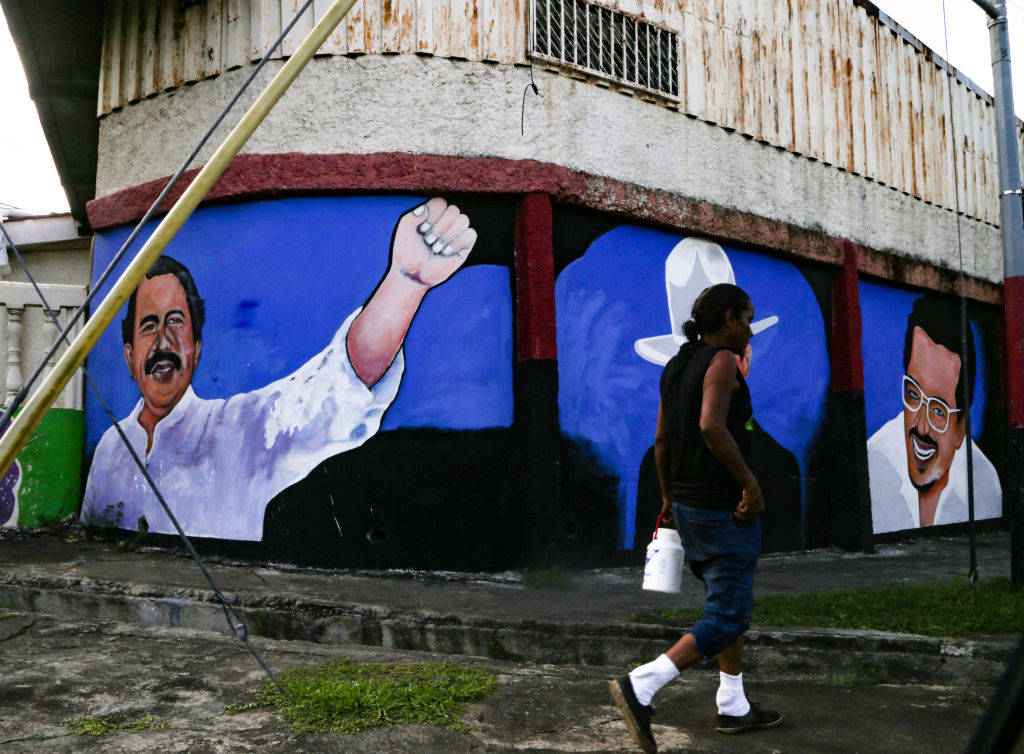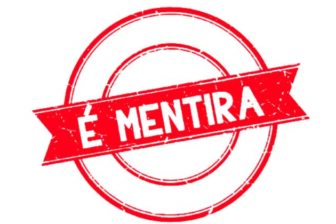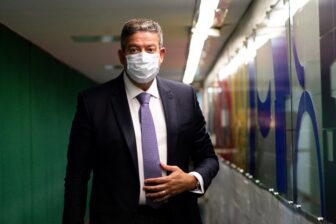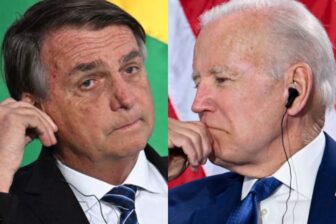The regime of Daniel Ortega and Rosario Murillo held their sham election on Sunday, removing any last shred of doubt that Nicaragua is, sadly, a dictatorship. The urgent question now before us is: How should the rest of the world react?
There are no miracle solutions to Nicaragua’s plight, and expectations of what can be done at this late stage must be tempered by realism. But there are still options that can place real pressure on the Ortega-Murillo regime, and show that yet another dictatorship in the Western Hemisphere will not be tolerated. The global community, led by the United States, Canada and the European Union, should start by not recognizing the results of what President Joe Biden described as a “pantomime election,” and increasing pressure with sanctions. Demand for the immediate release of all political prisoners, freedom of dissent and speech, respect for human rights and an electoral calendar that ensures free elections within a year should be a prerequisite to ease such sanctions.
The road that led Nicaragua to join Cuba and Venezuela among the ranks of dictatorships in the Americas was a long but predictable one. Daniel Ortega has been in office three consecutive terms since 2007, and this new one will be his fourth. If we take into consideration his years in power during the 1980’s, he is the longest-serving ruler in Nicaragua with a total of 28 years.
Back in 2018, when the government brutally repressed civilian protesters, it started systematically silencing opponents and journalists. Independent news outlets El Confidencial and 100% Noticias were overtaken by police forces and forced to close operations. The offices of Radio Diario were destroyed by paramilitary forces. Physical aggression, forced exile of more than 70 journalists, equipment destruction, illegal processes by the justice system and even death has been faced by communicators in Nicaragua. Blockage of other media such as La Prensa, to prevent their operations, has also been part of the scheme.
There are more than 150 political prisoners, including opposition presidential candidates and private sector leaders, all with the common denominator of expressing opposition to the regime. Prisoners are being harassed, deprived of food, of communications, isolated and prohibited to receive family or lawyer defense visits. According to family members and human rights organizations, political prisoners are being tortured. The Human Rights Inter American Court has ordered the immediate release of a long list of political prisoners, but this order has been ignored.
The consequences of not acting strongly and fast can be found elsewhere in the hemisphere, and Venezuela unfortunately provides the perfect mirror. The signs of what was being built in Venezuela were present long before it became the immense problem that it is today and prompt action was not taken. Nicaragua is a smaller country than Venezuela but a lot closer to the United States, and the largest country by area in Central America. The region is critical to the United States in the fight against drug trafficking, human trafficking and other criminal activities.
Nicolás Maduro of Venezuela remains amongst the strongest supporters of the Ortega-Murillo regime; both countries were expelled from the ranks of the Council of International Socialist parties held in 2019 in the Dominican Republic on the grounds of undemocratic practices and human rights violations. The State Department’s Country Reports on Terrorism recognizes that the Venezuelan Maduro Regime provides a permissive environment for terrorist groups, harboring them within their territory, including Hezbollah sympathizers. The risks of a stronger Venezuela-Nicaragua partnership are immense and real.
Some steps have already been taken before the November 7 fraud. The Organization of American States approved a resolution which called for free elections and received the support of 26 of its members, also condemning repression. The United Nations High Commissioner for Human Rights has stated that it found arbitrary detention of people in Nicaragua. Both multilateral bodies have sent clear messages to the Central American country. The European Union has condemned repressive actions and human rights abuses and placed sanctions.
The United States Senate approved in early November RENACER (Reinforcing Nicaragua’s Adherence to Conditions for Electoral Reform Act) which focuses on human rights and the call for democratic elections. The legislation intends to increase U.S. diplomatic engagement in response to the Ortega-Murillo regime tactics, including addressing corruption by the government and family members of the regime. The legislations allows for sactions coordination with Canada and the European Union and increased reporting on Russian activities in Nicaragua, among others. This legislation is likely to be sanctioned by President Biden soon.
The day after the elections, the demands and calls to action need to turn into new, stronger concrete steps. First, the immediate withholding of recognition of Ortega’s new term and the announcement and implementation of coercive measures. This could include the withdrawal of ambassadors from Nicaragua, expelling Nicaragua from the Organization of American States and prompting international financial institutions to halt loans and other provisions of financial resources to Nicaragua.
Bilateral actions could also be evaluated by the United States, the European Union and other democratic countries. Trade avenues as those allowed for by trade agreements such as CAFTA should be reviewed to ensure they do not provide support avenues for the regime. Sanctions based on human rights abuses and the violation of democratic principles also need to be on the table. Specific measures and sanctions against companies and people linked to the regime such as withdrawal of visas, judicial action against crimes and inclusion to OFAC sanctions list also need to be addressed.
The Nicaraguan people deserve for democracy to be restored in their country. The countries of the Americas need to show that another dictatorship in our hemisphere is unacceptable.


